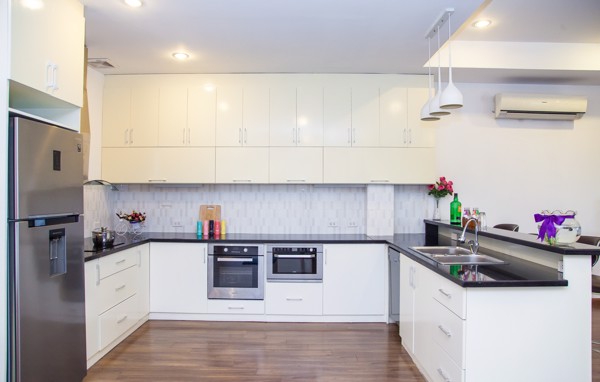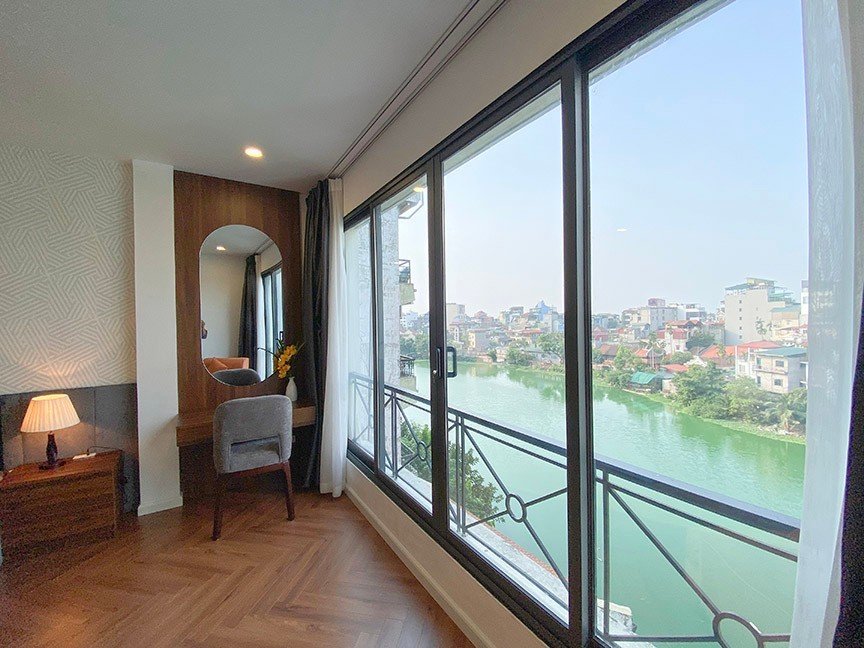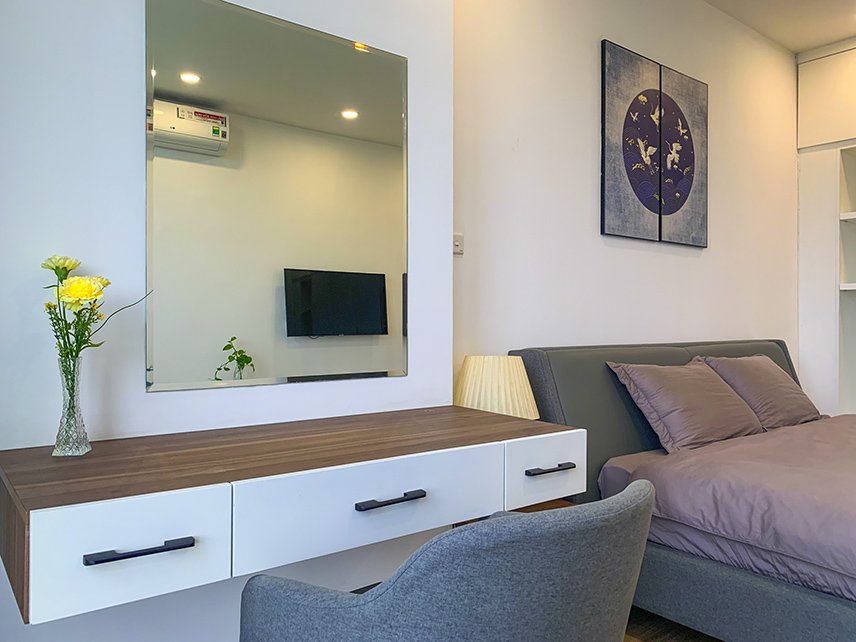Lifestyle
The Art of Minimalist Living
Tài Tâm Leasing - 09/10/2025
A New Era of Compact Living
In the modern urban landscape, space has become one of the most valuable luxuries. Cities are growing denser, lifestyles are evolving, and more people are discovering that less can truly mean more. This is where minimalist living in small apartments comes in — not as a compromise, but as a conscious lifestyle choice that celebrates simplicity, clarity, and comfort.
Minimalist living isn’t about depriving yourself of things; it’s about keeping only what adds genuine value to your life. It’s the art of maximizing functionality, creating beauty through simplicity, and turning even the smallest apartment into a sanctuary of peace and inspiration.

The Philosophy Behind Minimalism
Minimalism goes far beyond aesthetic appeal — it’s a mindset. At its heart lies the belief that owning fewer things allows you to live more freely. By reducing physical clutter, you make room for mental clarity and emotional calm.
For those living in small apartments, this philosophy fits perfectly. Every item you choose to keep serves a purpose, and every corner has intention. A minimalist home encourages mindfulness: you buy thoughtfully, decorate intentionally, and appreciate the presence of space as much as the presence of objects.
It’s a reminder that your home doesn’t have to be large to be fulfilling — it simply needs to reflect who you are, not what you own.
Designing with Purpose
When it comes to designing a minimalist small apartment, the golden rule is function first, aesthetics second. Every square meter should be carefully planned to serve a purpose without feeling crowded.
Start with a neutral color palette — whites, beiges, soft greys, or muted earth tones. These hues reflect natural light and make the room feel larger and more airy. Furniture should be sleek and multi-functional: think of a sofa bed, a foldable dining table, or floating shelves that save valuable floor space.
Lighting also plays a vital role in minimalist design. Natural light enhances the feeling of openness, while strategically placed lamps add warmth and depth. A well-placed mirror can visually double your space, creating a sense of calm and expansiveness.
Remember: empty space isn’t wasted space — it’s breathing room for the mind.

Decluttering: The First Step to Freedom
You can’t embrace minimalist living without decluttering. It’s the foundation of the lifestyle. The process begins by assessing what you own — every item, big or small — and asking: Do I use this? Do I love this? Does this add value to my daily life?
This act of intentional evaluation transforms not just your living space, but your mindset. Many people describe decluttering as emotional liberation — letting go of objects that no longer serve them feels like releasing unnecessary weight.
Once you simplify, maintenance becomes easier. Cleaning takes less time, and your home always feels organized and peaceful. You’ll notice how energy flows more smoothly through a space that’s free of excess.
Smart Storage Solutions
Small apartments require smart thinking. Storage doesn’t have to mean bulky cabinets; instead, it’s about integrating storage seamlessly into your living design.
Use under-bed drawers for seasonal clothing, hidden compartments within ottomans, or vertical shelving units that make use of wall height. Modular furniture allows flexibility — you can rearrange, expand, or fold away depending on your needs.
Minimalist living is about keeping things accessible but invisible. The goal is to create a visually calm environment where everything has its place and purpose.
Creating Comfort through Simplicity
One misconception about minimalist homes is that they can feel cold or impersonal. In reality, minimalism can be deeply warm and inviting when done thoughtfully.
Add texture through natural materials like linen curtains, wooden furniture, or woven rugs. Introduce greenery — a few plants instantly bring life and freshness into any space. Choose décor that has meaning: a single piece of art, a travel souvenir, or a handmade ceramic cup can speak louder than dozens of random objects.
The beauty of minimalism lies in quality over quantity. When every detail is chosen with care, even a modest studio apartment can exude elegance and serenity.
The Emotional Benefits of Minimalist Living
Beyond aesthetics, the minimalist lifestyle offers profound psychological benefits. A clutter-free home reduces stress, improves focus, and promotes better sleep. Studies show that visual clutter can subconsciously increase anxiety, while organized environments encourage calmness and creativity.
For young professionals, students, or anyone navigating a busy city life, minimalist living provides grounding — a way to disconnect from chaos and reconnect with self. Your home becomes your retreat, a place that supports your wellbeing instead of draining it.
Living small teaches gratitude. You become more intentional about consumption and start finding joy in experiences rather than possessions.
Sustainability and Conscious Consumption
Minimalism aligns naturally with sustainability. By buying less and choosing better, you reduce waste and environmental impact. Many minimalist apartments incorporate eco-friendly materials, energy-efficient lighting, and space-saving designs that reduce the need for excessive resources.
Choosing durable, timeless pieces over trendy, disposable ones contributes to a more sustainable lifestyle — one that values longevity and craftsmanship.
Small spaces also encourage sustainable habits like mindful energy use, smaller carbon footprints, and efficient living. In a world facing overconsumption, minimalism is not just a personal choice; it’s a responsible one.
Living Large in a Small Space
The biggest secret of minimalist living in a small apartment is this: the less you have, the more you enjoy.
Without the distraction of clutter, you start appreciating small pleasures — morning sunlight spilling across your floor, the quiet hum of your coffee maker, the soft comfort of your favorite chair. You begin to live in your home, not just occupy it.
Minimalism transforms a small apartment into an intimate, expressive, and deeply personal space. It teaches that happiness doesn’t depend on square meters but on how meaningfully you fill them.
Conclusion: Finding Freedom in Simplicity
Minimalist living in small apartments is more than a design trend — it’s a lifestyle that reflects clarity, balance, and intention. It’s about choosing what truly matters and letting go of the rest.
By embracing simplicity, you gain more than space; you gain peace of mind, financial freedom, and the ability to live more purposefully.
Whether you live in a studio downtown or a cozy one-bedroom by the park, remember: minimalism is not about less living — it’s about more life.
Your apartment may be small, but your experience within it can be infinite.



